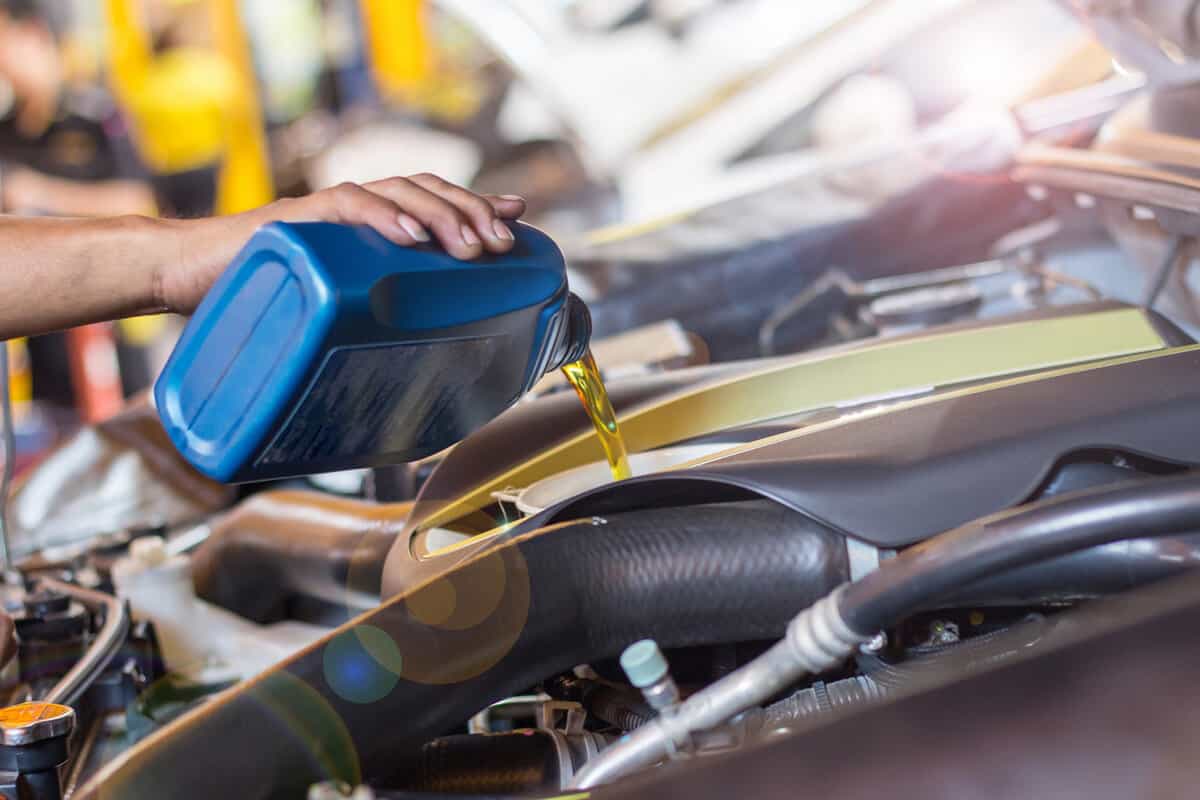When you get your vehicle's oil changed, it is supposed to run a bit better. Oil is the lifeblood of your car's engine, and routine oil changes are vital for its longevity. If you have noticed that your gas mileage has decreased soon after an oil change and are wondering what you can do, we can help you. We researched the causes of this fuel economy decrease in depth so you'll know for sure what steps to take.
If you get your oil changed and you notice a drop in your fuel economy, you should:
- Ensure the correct oil weight was used
- Ensure the correct amount of oil was added
Now that we know what you should do if you notice a drop in your fuel economy after an oil change, we'll take a closer look at why. You might also be wondering what else will impact your miles per gallon or if synthetic oil can be used in older model vehicles. For the answers to these questions and more, read ahead in this post to see what our research has uncovered.

Examining The Causes Of Your Drop In Fuel Economy
With fuel costs rising, you'll want to make sure that your vehicle is getting the best use of the fuel you put into its tank. So when you notice a drop in fuel economy after a bit of routine maintenance like an oil change, it should motivate you to remedy the situation.
There are only three common reasons why you would be getting fewer miles per gallon after this service is completed. They can be easily remedied. But failure to act quickly can also result in damage to your engine. So, be diligent and identify the problem as quickly as possible.
Make Sure The Correct Oil Weight Was Used
Your engine was manufactured using oil of certain viscosity. This refers to the thickness of the engine oil. The higher the weight, the thicker the oil is.
If the wrong weight of oil was mistakenly put into your crankcase, then your engine will not get the lubrication and cooling that it needs from it. Gears will begin to rub and wear, and the engine itself will have to work harder. The more the engine has to labor, the less fuel economy your vehicle will get.
You should double-check the weight that was used. Make sure it matches the recommended weight in your owner's manual. If it is the wrong weight, you will need to drain the oil out and add the correct weight to it. This will require a complete oil and filter change.
Remove Any Excess Oil That Was Added
If the correct oil weight was used, then the problem might be the amount of new oil that was added. Your crankcase will only hold a specified amount of motor oil before it overflows.
This overflow can seep into the combustion chamber. When this happens, the fuel/air mixture will be off, drastically impacting the engine's performance. This will also do great damage to the fuel and ignition systems if it is not fixed.
Before you add oil to your vehicle, check to see how much it will need. This information will vary from model to model. Your owner's manual will list the recommended amount.
Ensure That Enough Oil Was Put Into Crankcase
If the first two reasons don't check out, then it will most likely be a lack of oil that is causing the drop in fuel economy. If you accidentally put less oil than required, the engine will not function properly. It will not have its moving parts lubricated. The engine will not have the cooling effect of the engine oil, either.
Low oil is a problem. But it is easy to check. The dipstick in the engine can be pulled and examined to see the engine oil level. If it is too low, then all you need to do is add the proper amount.
It cannot be stressed enough that you should always diagnose and remedy this issue immediately. The engine is the most expensive part of your vehicle. If you want it to last, it will need the correct oil and the right amount of it to work.
What Impacts Your Fuel Economy?
Motor oil isn't the only thing that will impact your fuel economy. There are a good number of factors at play when you need to maximize the number of miles per gallon of your vehicle. Some of them you will most likely have heard of before. But a couple might surprise you.
Tire Inflation
An often overlooked piece of keeping good fuel economy is your tires. Tires are the only parts of your vehicle that come into direct contact with the roadway. To get the best mileage, keep the tires inflated to the proper psi.

Tires that are partially deflated will not spin well. The engine will have to work even harder to propel the vehicle forward if the tires are low on air. Experts maintain that keeping the correct psi in your tires will improve your fuel economy by up to 3 percent.
To view this Jaco tire gauge on Amazon, click here.
Routine Maintenance
If you don't have routine maintenance performed, it will lower your fuel economy. The maintenance items listed in your owner's manual are not just for making the vehicle last. They are also so your vehicle can achieve peak performance.
Whether it's an oil change, a filter replacement, or any other item, be sure it gets done when the manual recommends it.
Driving Speed
Driving over the speed limit will require more fuel. The faster you drive and the more you use that accelerator, the more power your engine has to exert. This power requires more fuel.
Wind Resistance
Anything you carry on the top of your vehicle will increase wind resistance. This will make your engine work more to achieve your desired speed. If you limit the items on the rack of your car, you will see your fuel economy increase.
You should avoid driving with your windows down. This will also increase wind resistance.

Overloading The Vehicle
The more weight you are carrying, the more your engine has to work. The more the engine works, the more fuel it burns. If you are serious about increasing your fuel economy, do what you can to lighten your load.
Take items out of your trunk or storage area that are not essential or needed in an emergency. Be wary of how many passengers you carry on board. Every pound counts!

When Should You Change Your Oil?
When you should change your oil will depend on several factors. It used to be that an engine would need its oil and oil filter changed every 3,000 miles, with minimal exceptions.
But modern vehicles can be driven longer between oil changes. Some can go up to 4,000 miles on standard motor oil before they need to be changed. Vehicles that use synthetic motor oil will need it changed every 5,000 to 10,000 miles, depending on the model.
Your owner's manual will carefully outline the frequency of oil changes. We strongly urge you to review this information. Stick to the mileage/time intervals for any maintenance items for the best results.

Can I Use Synthetic Oil On Older Model Cars?
If you have an older car, you've probably been using standard motor oil. Maybe when you bought it, no one was using the synthetic oil. Or maybe you've just been apprehensive about changing products. Thankfully, synthetic oil can be used on older model vehicles. It actually benefits them.
Synthetic oil is safe to use in older engines. This engine oil alternative is cleaner than its counterpart. It does not have particles that evaporate. Synthetic oil holds its weight longer, making you go longer between oil changes.
This type of engine oil is more expensive per quart. But the time and money you save with fewer oil changes will more than make up for the difference.

Final Thoughts
Your fuel economy should never decrease after you get the oil changed. If it does, it indicates that mistakes were made during this maintenance job. Remedy the mistake as quickly as possible so that you do not do permanent damage to your engine. Drive safe!
We hope that this post on oil changes answered all of your questions. For additional helpful information, we suggest reading the following automotive posts:
What Half-Ton Trucks Have The Best Gas Mileage?

